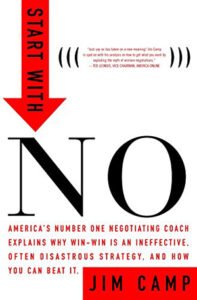|
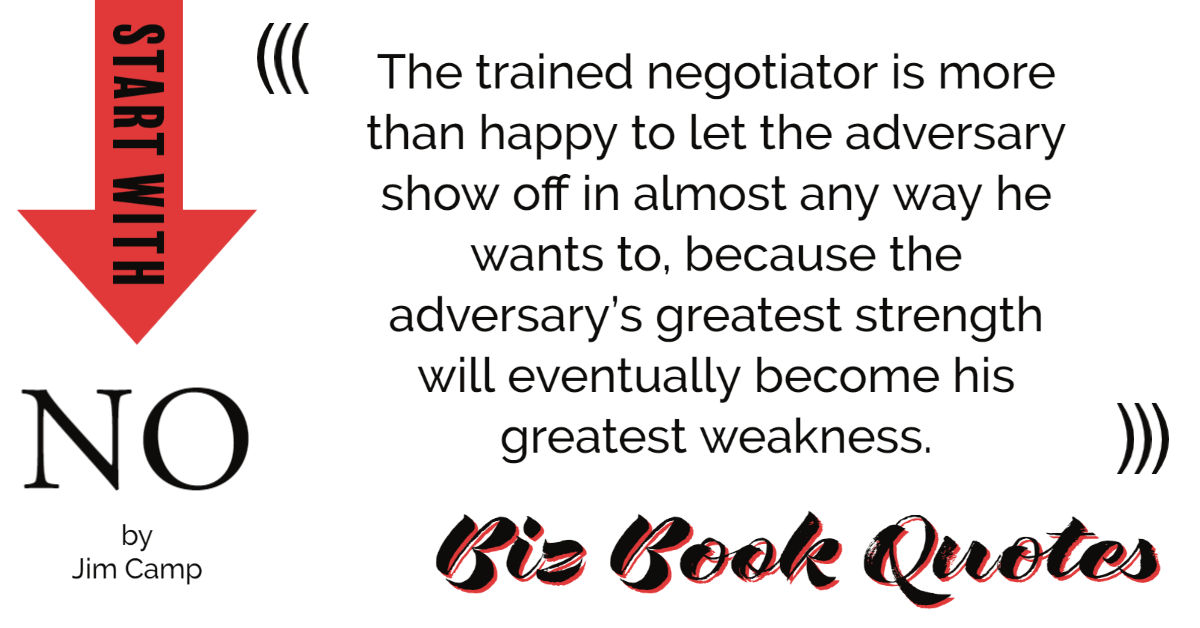
|
Start With No:
The trained negotiator is more than happy to let the adversary show off in almost any way he wants to, because the adversary’s greatest strength will eventually become his greatest weakness.
|
39 |
|
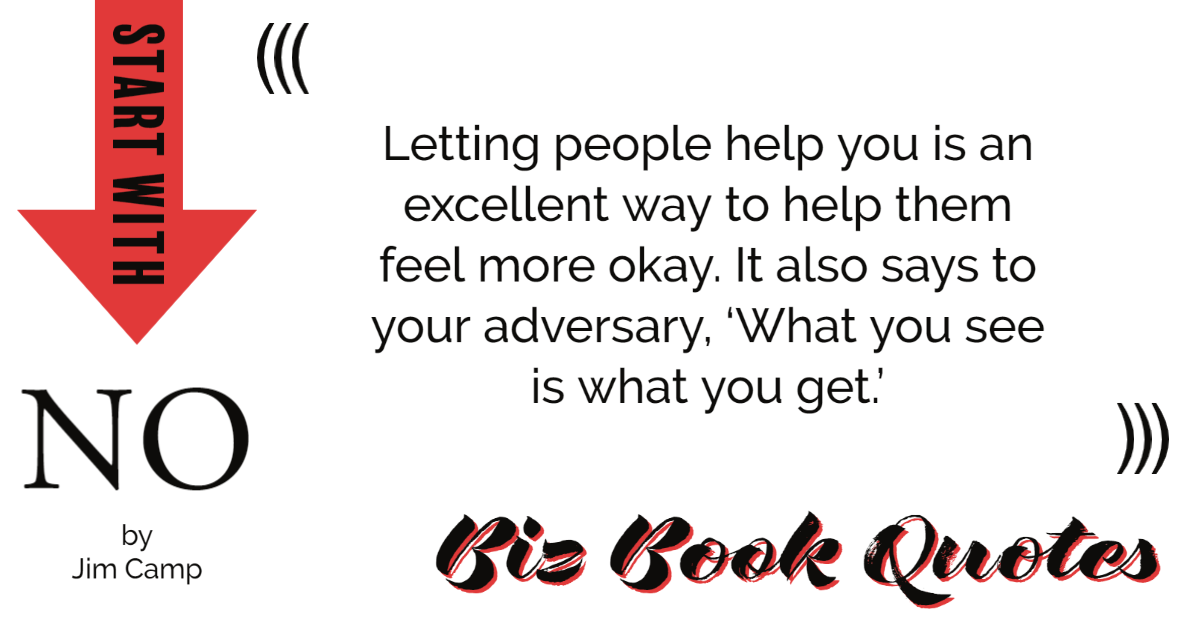
|
Start With No:
Letting people help you is an excellent way to help them feel more okay. It also says to your adversary, ‘What you see is what you get.’
|
40 |
|
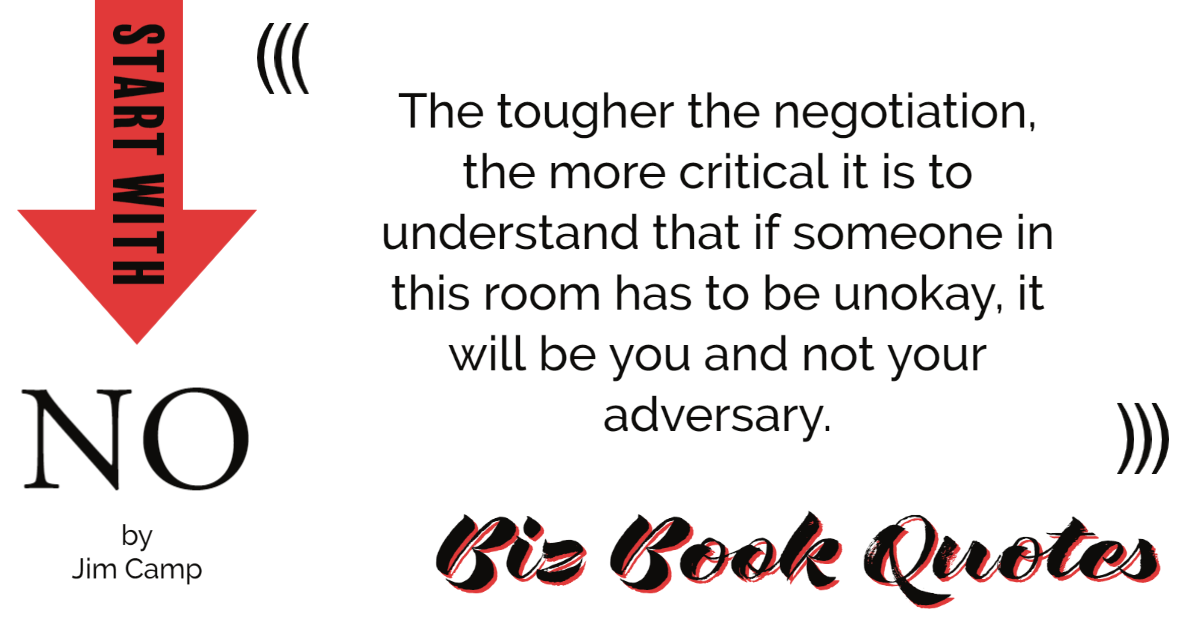
|
Start With No:
The tougher the negotiation, the more critical it is to understand that if someone in this room has to be unokay, it will be you and not your adversary.
|
41 |
|
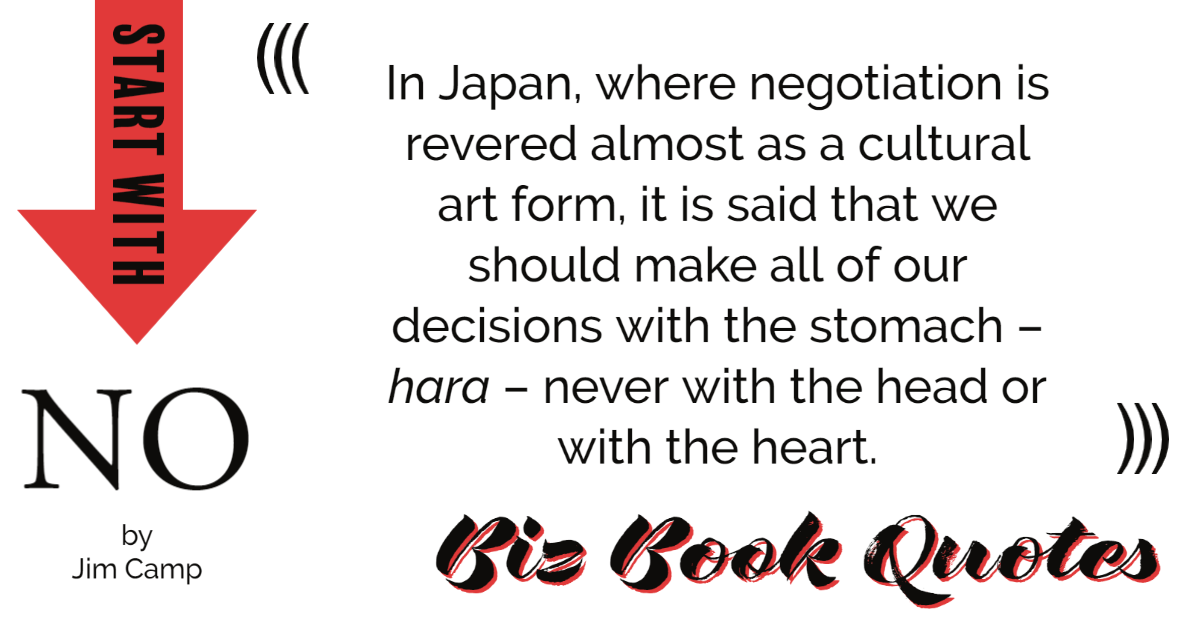
|
Start With No:
In Japan, where negotiation is revered almost as a cultural art form, it is said that we should make all of our decisions with the stomach – hara – never with the head or with the heart.
|
43 |
|
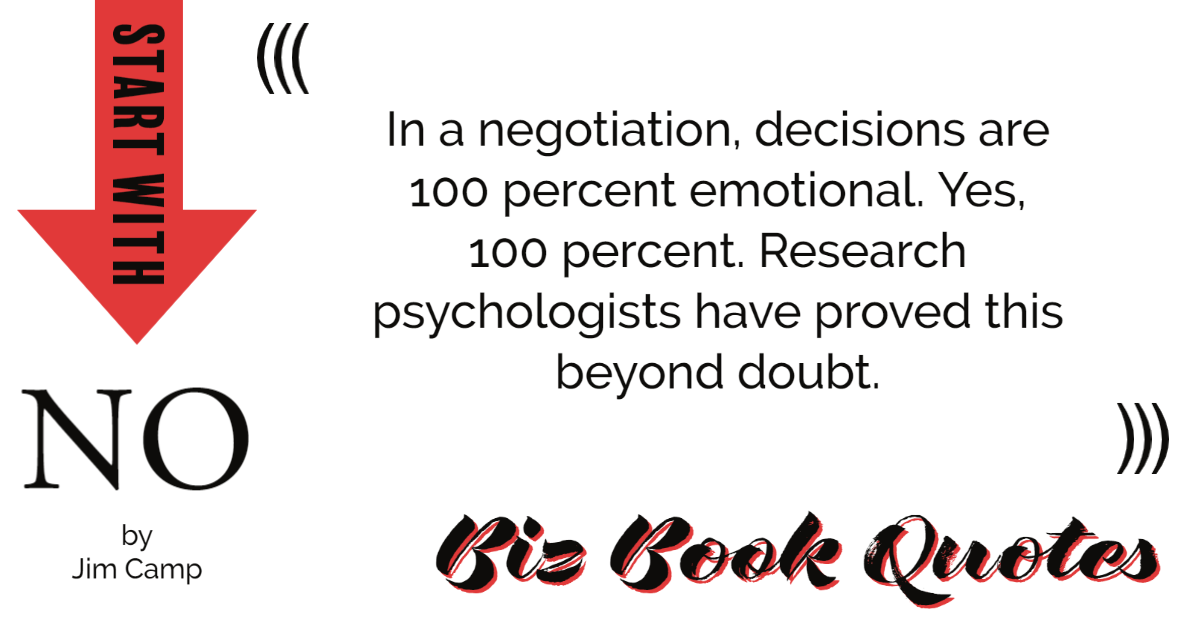
|
Start With No:
In a negotiation, decisions are 100 percent emotional. Yes, 100 percent. Research psychologists have proved this beyond doubt.
|
43 |
|
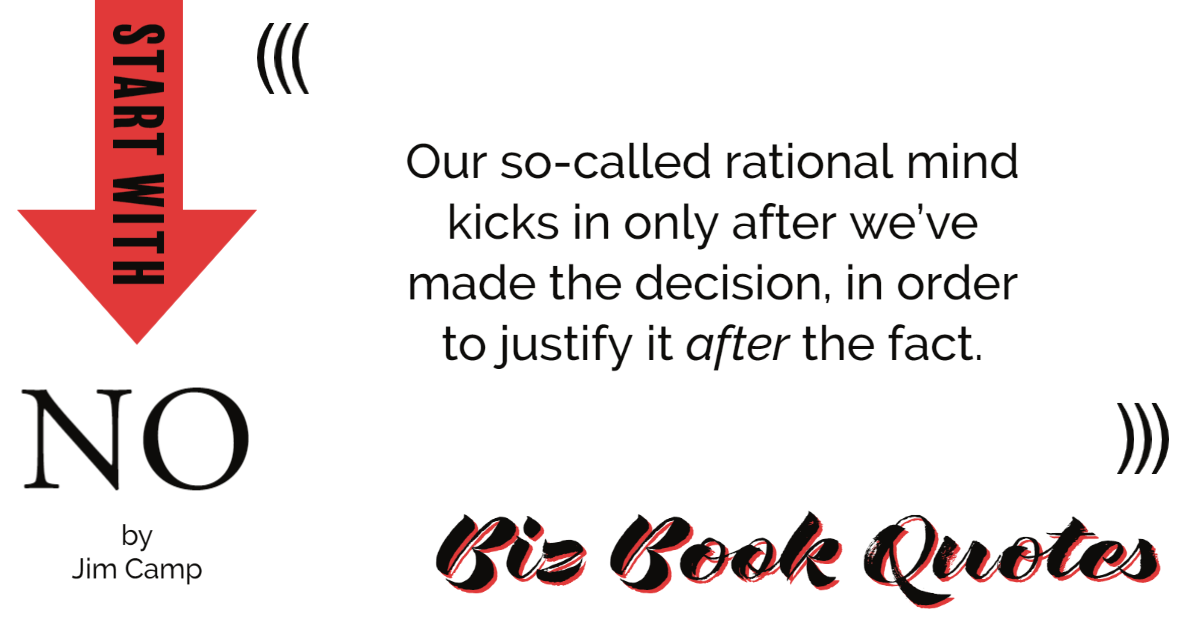
|
Start With No:
Our so-called rational mind kicks in only after we’ve made the decision, in order to justify it after the fact.
|
44 |
|
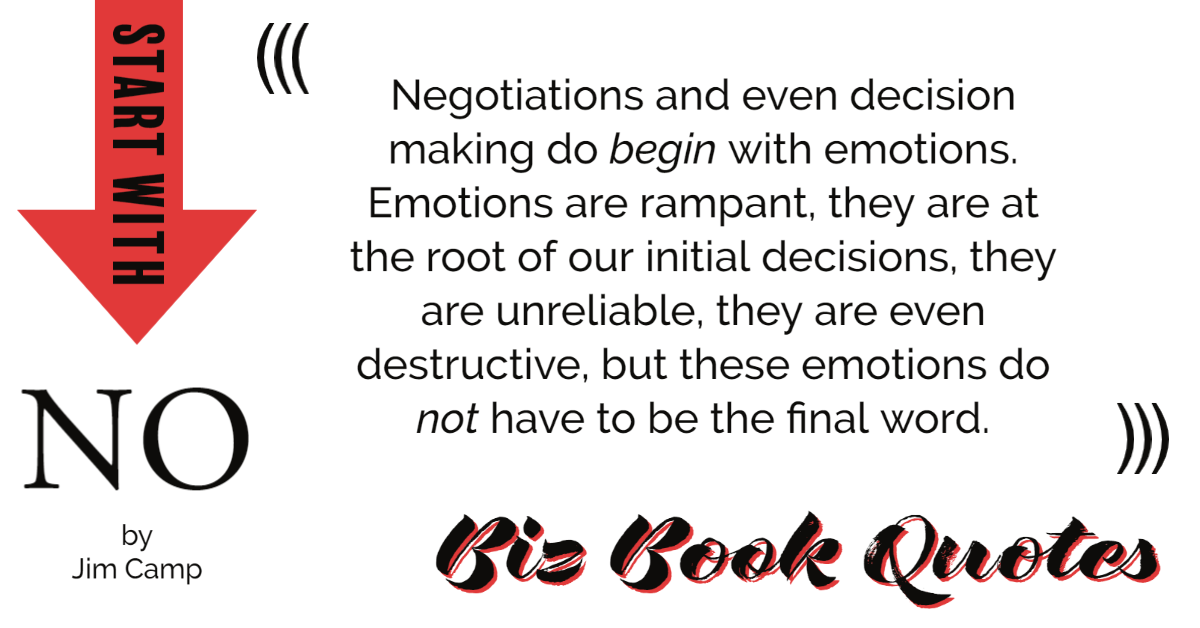
|
Start With No:
Negotiations and even decision making do begin with emotions. Emotions are rampant, they are at the root of our initial decisions, they are unreliable, they are even destructive, but these emotions do not have to be the final word.
|
45 |
|
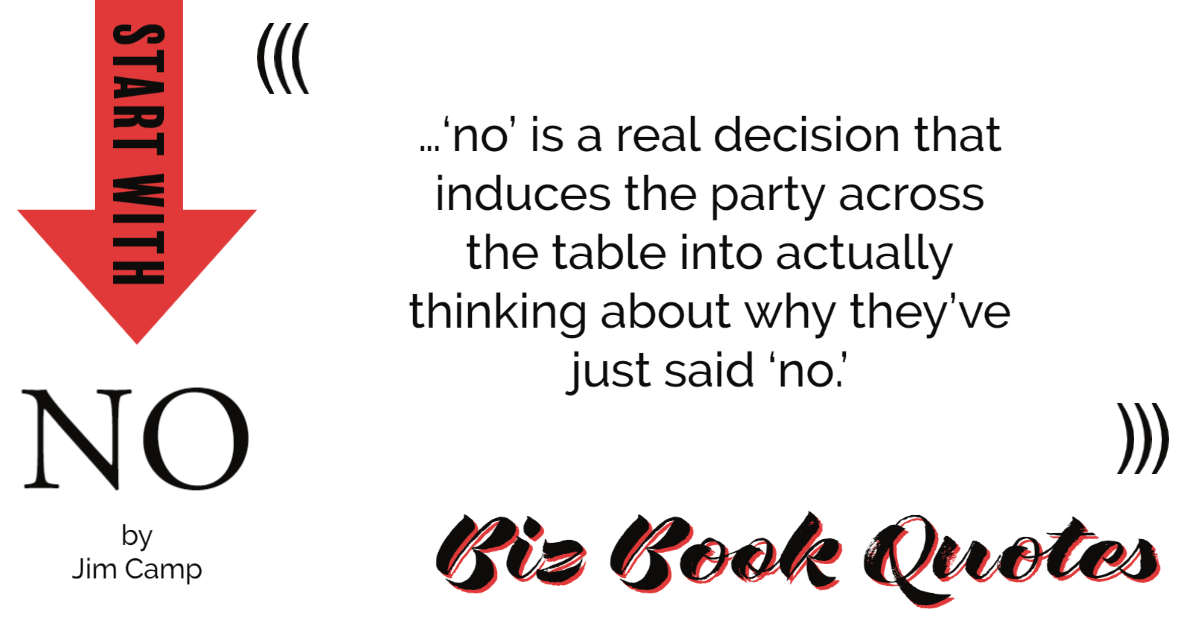
|
Start With No:
’no’ is a real decision that induces the party across the table into actually thinking about why they’ve just said ‘no.’
|
45 |
|
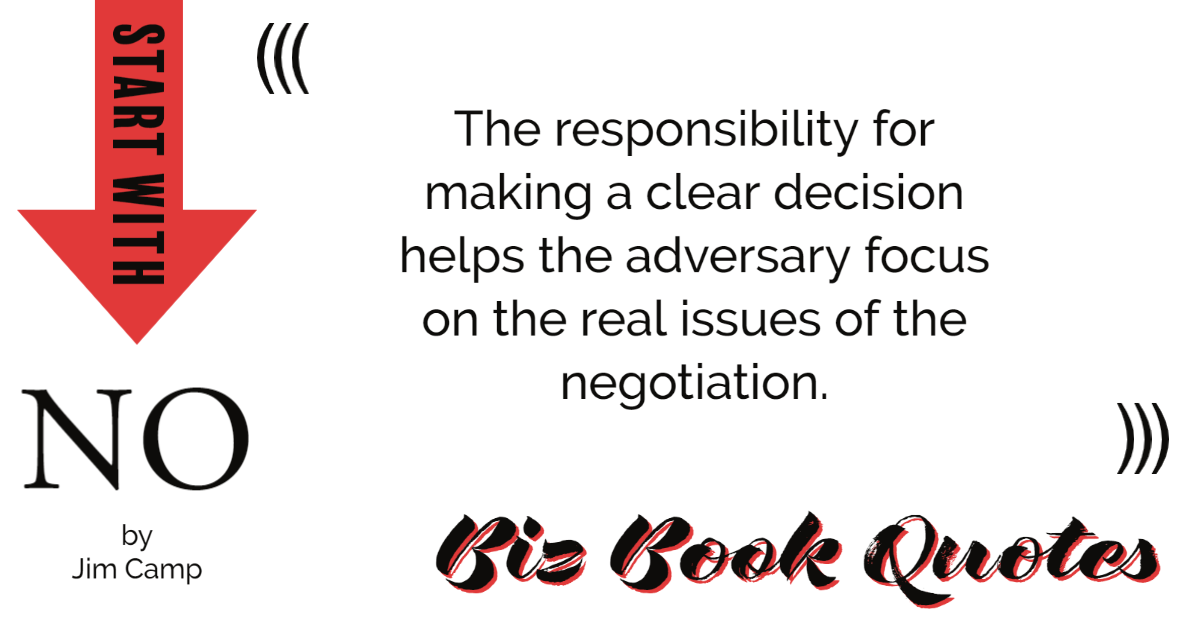
|
Start With No:
The responsibility for making a clear decision helps the adversary focus on the real issues of the negotiation.
|
45 |
|
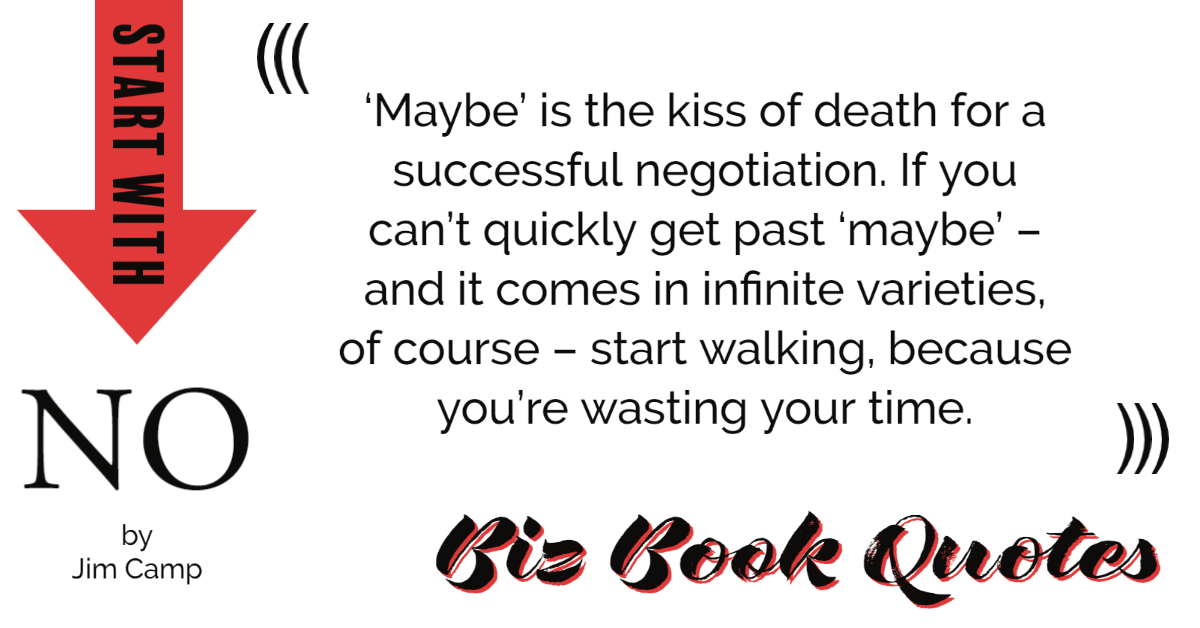
|
Start With No:
’Maybe’ is the kiss of death for a successful negotiation. If you can’t quickly get past ‘maybe’ – and it comes in infinite varieties, of course – start walking, because you’re wasting your time.
|
46 |
